Prepping for When Flooding Strikes
Preparing for natural disasters is so critical because they seem to be happening more frequently and with greater intensity worldwide. You don’t necessarily have to be one of those people preparing for the end of days, but preparing your home and your family for a scenario such as a flood is a great idea. Let’s talk about prepping for when flooding strikes! In case you missed this post, 12 Types of Natural Disasters
That’s because floods don’t typically give you much time to prepare, and many unfortunate people decide to wait until the last minute and then try to get up to speed. Maybe you don’t live in a part of the country that experiences flooding too often, but this information could still be of importance to you, especially if your area were ever to be blindsided by a freak storm. Here’s more on prepping for when flooding strikes.
It may seem strange to stress the need for flood preparedness, particularly here in the West where we’ve had years of drought. Most of the western states have had a great water year with above-normal snowpack. If we have an unusually warm spring, the runoff could create some flood risk and flood waters may be an issue. Flood damage to your home and property can be difficult to deal with on your own, so let’s do all we can to minimize the chance of expensive and dangerous floods.
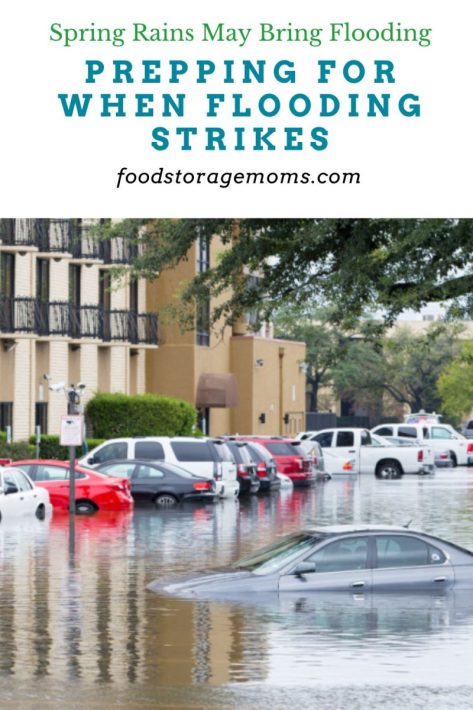
Have a Plan Already In Place
Get an emergency plan put together so you know where you’ll go if you’re ever given evacuation orders to leave your home. Whether it’s a family or friend’s house that’s an hour or two away, you’ll want to know the evacuation routes. Have more than one route laid out once you decide it’s the place where you should go. You may need to seek protection at your local shelter until it’s safe to evacuate.
Your family may also be in different places when a flood strikes, so make sure that you discuss with everyone where you will rendezvous under different scenarios of work, school, home, etc.
You’ll need to plan several escape routes for your vehicle in case the main roadway becomes blocked by traffic, flash floods, or debris. You want to get your family to higher ground above flood elevation as quickly as possible to escape those risks.
Preparing Your Home for a Flood
If you have time to do so, there are several things that you need to do around your home to prepare for a flood:
- First off, make sure that your gutters and downspouts are clear of leaves and debris so that they can move the rainwater away from your home.
- Remove low-hanging branches hovering near your home and trim your bushes. Unplug your appliances and set them on cement blocks if possible if home flooding is imminent. That would include your water heater, washer and dryer, furnace, freezer, and refrigerator. Make sure basement drains are clear.
- Many homeowners place sandbags and other barriers around their homes to redirect floodwaters and keep them safe when a flood threatens. While you may be spending more on this one, think of the thousands of dollars you could save in your home. You could also try filling trash bags (they may tear) with sand to help stop your home from flooding. Sometimes, your city will hand 25 bags to each homeowner or renter.
- If you get a flood warning from agencies like the National Weather Service, you must also unplug everything electrical. Then take these things TVs, computers, monitors, sound systems, and move them to the highest point in your home to keep them from being water-damaged. Also, move any of your valuables and furniture upstairs to the highest point in your home.
- If you have any fuel or water tanks in the garage, find some way to tie or chain them down.
- Another thing that you need to consider long before any flooding is to get your home covered by flood insurance. Regular homeowners insurance doesn’t cover “acts of God.” Your area may qualify for National Flood Insurance Program coverage for your flood insurance needs. Typically, there is a two-week waiting period before flood insurance policies will take effect; please check with your insurance agent.
- It may be prudent to totally turn off the utilities to your home. Learn where the main power switch is in your electric panel. Also, know where the main gas valve is for your natural gas or heating oil. You’ll probably need the gas company to come and turn things back on, but that’s ok if you protected your home.
Flood Supplies You Will Need
Sump Pump
If your home does take in floodwater you’re going to need a method to remove water from your basement. Get yourself a sump pump for your home that has a battery-powered backup in case you’re also dealing with power outages.
Drinking-Water and Water Filter
When flooding happens in your area, it may not be bad enough that you have to evacuate your home. But you could be dealing with contaminated tap water along with a power outage and no safe way of getting to the grocery store.
Plan on storing enough bottled water or gallons of water in larger containers for everyone in your family for at least three days. On average, you will need four gallons of water per person per day, so plan accordingly. Groups like FEMA and the American Red Cross have suggested a minimum of one gallon of water per person per day. I don’t see how you can stay hydrated, do some cooking, perform minimal personal hygiene, and do limited laundry with so little water.
Some people even fill up their bathtubs and sinks with drinking water and then use a portable water filter to purify their water. I like the water filter systems from Big Berkey and PortaWell. Check them out if you want a reliable long-term solution for backup water in your home. One of my favorite ways to store water is in WaterBricks.
Food
It’s a great idea to have a fully stocked emergency pantry already in place so that your family has something to fall back on. Non-perishable food items are shelf-stable for long periods of time, so I’d encourage you to go this route and have enough for at least 72 hours.
Remember to pack energy-boosting snacks like protein bars, beef sticks, and jerky. There’s also a good chance you won’t be able to cook if the power goes out, so plan on foods that don’t require cooking.
Flashlights
Store several flashlights with enough extra batteries to see your way around in the dark. Please have some with batteries and some that use solar. Flash Lights and Solar Flashlights
Weather Radio
You’re going to need updates on the weather and any changes that may be happening. Get yourself a NOAA weather radio that is solar-powered or is hand-cranked to receive vital information. You will also need 2-way radios for your family if one of you has to separate from the rest of the group. Weather NOAA Radio
Warm Blankets and Clothing
Be sure to have plenty of warm blankets and extra clothing ready for each of your family members. Don’t forget socks and underwear. In case you missed this post, 6 Reasons To Store Blankets For Any Emergency
Rain Gear
There are not many things in life that are more miserable than sitting in cold, sopping-wet clothing. Don’t forget to pack rain gear for everyone in case you have to venture outside. Many people forget rubber boots and some gloves. I’d suggest some rubber gloves since the materials you may have to move could be contaminated.
Non-Electric Heater
When you’re planning to hunker down in your home while waiting out the flood, you’ll need some way of staying warm. Get yourself a non-electric heater like a propane heater to do the trick. Be careful because most propane heaters must be used outdoors. How To Heat Your Home In An Emergency
Butane may prove to be a safer option, but it also needs plenty of ventilation when being operated.
Evacuation Bag
There’s always the possibility that you may have to evacuate your home, so you’ll need to have gathered enough supplies and essentials ahead of time and set aside if you need to leave in a hurry. You can call it a bug-out bag, a grab-and-go bag, or a 72-hour kit. No matter what it’s called, it needs to contain those things you’ll need for the first 72 hours of the emergency.
Protect Your Documents
Get yourself a water/fireproof chest that you can store all your important documents, computer memory cards, and smaller valuables that you don’t want to be misplaced. Gather your marriage certificate, birth certificates, insurance information, and other documents that you don’t want to lose. In case you missed my post, Emergency Binder
You’ll want to have some of those documents to refer to if you have to evacuate, so make some copies of your health and property insurance information so you have policy numbers, agent names and numbers, and other critical information.
When You’re Forced to Evacuate…
If the situation becomes life-threatening and you have to evacuate your home, don’t hesitate and get out quickly. But if you still have enough time before you have to leave, make sure that you turn off your electricity, water, and gas to your home to minimize the damage to your home and related appliances and equipment.
When you leave your home and travel the roads, be sure to look out for downed power lines. They can be life-threatening and nothing to fool with. Stay clear and don’t try to drive over them, and don’t stop and attempt to lift them so you can pass underneath.
Final Word
Flooding is something that should never be taken lightly. They not only cause major damage to homes and entire communities, but they’ve been known to take many lives as well. With these prepping tips, you’ll be able to not only minimize your home’s damage, but also keep your family safer, which should be your main concern. What tips would you consider for prepping for when flooding strikes? God Bless this world, Linda
Copyright Images: Stormwater Flooding AdobeStock_225446419 by Soupstock, Flooding in Houston Texas AdobeStock_217277618 By By Michelmond

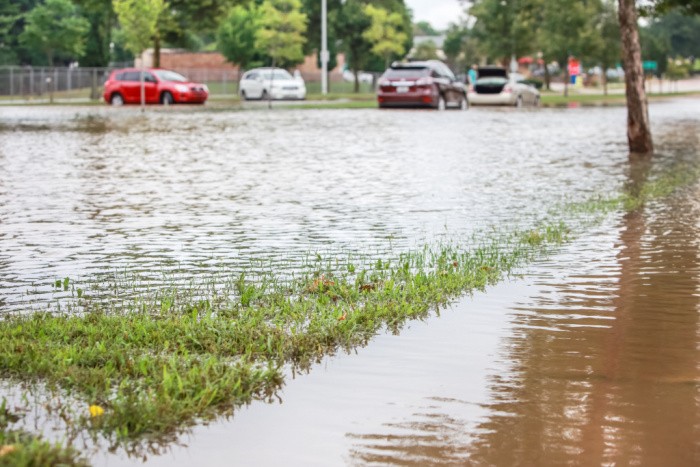

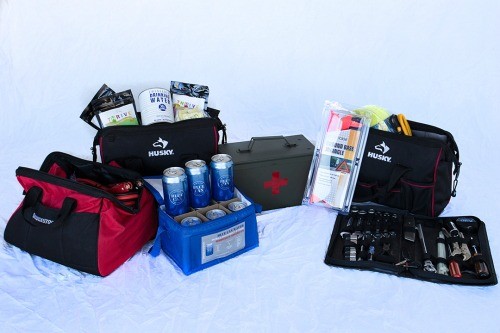
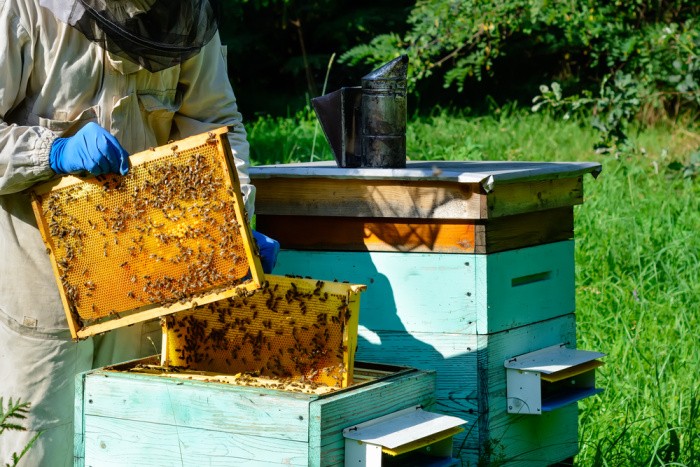
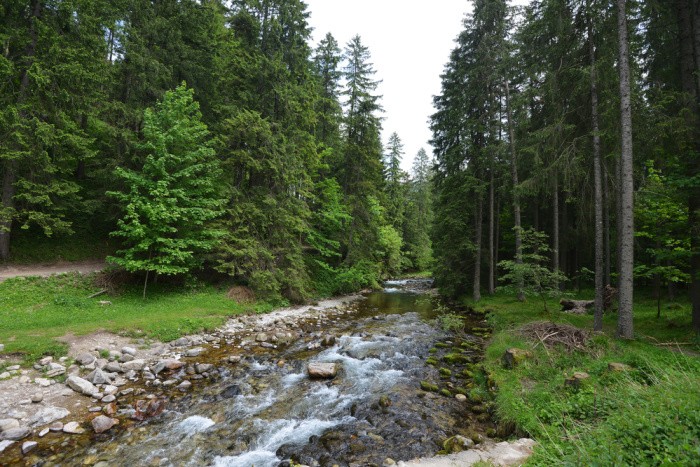
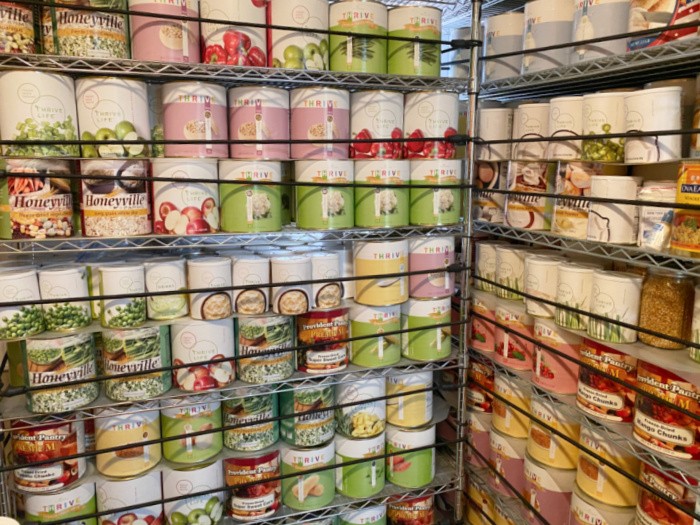
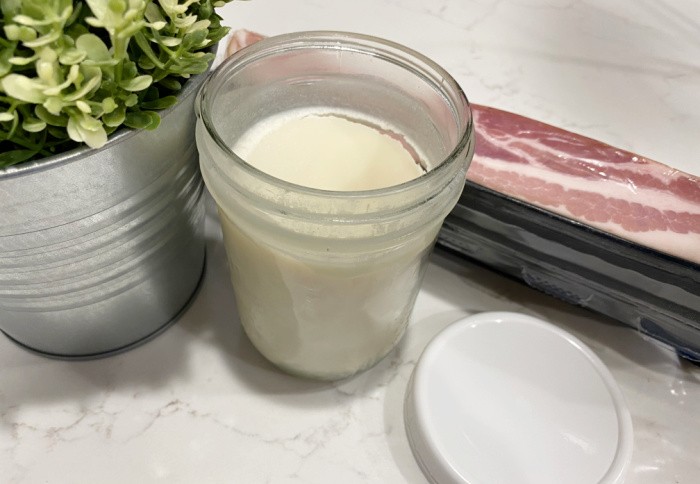
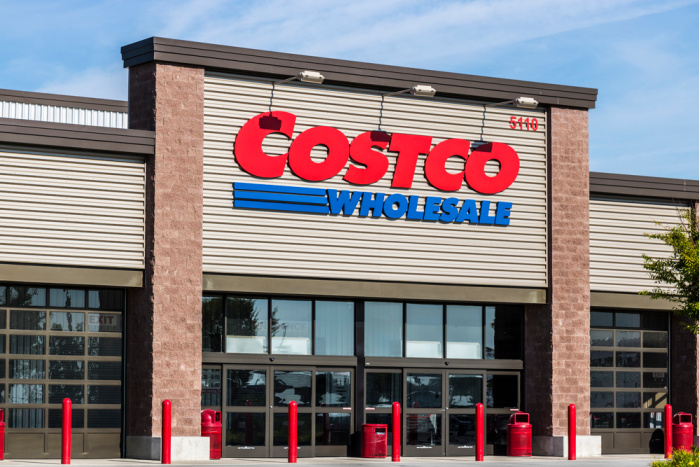













Really appreciate information like this. Thank you Linda, your expertise is great appreciated.
Hi Tiffany, thank you for your kind words, Linda
Linda, these are all good things to keep know. We need to clean our gutters. It’s that time of year again. We’ve never had flooding here, but, it could happen. We did have part of a road wash away. Luckily, there are several ways to get to town. We do have most of everything we’ll need in any situation. We are subject to tornados, though. The only one I’ve ever been in, was several years ago. It went behind us to the west and to the East in front of us. It was so strange. And most of the homes damaged were not mobile homes. We were sitting on the front porch eating dinner. It was hot and we had lost power. Luckily, the food was ready to eat. Luckily, we had no damage, and neither did my MILs house. She had one tree fall to the west and one to the east.
Hi Deborah, wow, what a blessing the tree missed the house. We have flooding here, the soil is so hard the water floods. Some homes in my neighborhood are uninsurable right now. It’s sad. They can’t sell the house, because insurance on the home is not available. It flooded twice, condemned twice. It’s a big beautiful home, so sad. The government only requires flood control for 100-year floods in neighborhoods. We have had three 500-year floods in the 15 years living in this home. Crazy weather, Linda
It was a blessing. Luckily, my MIL was living with us at the time. She decided it was time. We had told her that when she was ready, she had a room and a home with us. She was not going to a nursing home! She was no trouble at all. I still miss her. She left us in May of 2017. She and I always got along well. Even more so than my mother. MIL always treated me as an equal, not as a child. We had so much in common. We both sewed, knitted and crocheted. She crocheted up until a week or so before she died. She made lap quilts for others. She was always such a giving person.
Hi Deborah, wow, what a blessing to her and to you. I have visited many people in nursing/care homes. I saw great opportunities for people to have meals made for them, laundry is done, etc. The social would have been great for some people. My MIL never wanted to go to a home and she was blessed to stay at her home. I hate to admit this but I could not have lived with my MIL. I did invite my mother to come live with us, but she died before that happened. She wanted to live with us but at the same time, she wanted her own home. I sure hope I can stay in my home. I turned 70 this year and you start looking at the future in a very different way. Happy Thanksgiving, Linda
I don’t want to go to a nursing home either. My mother was going to come and stay with us in 2007 after she had a valve in her heart replaced. But she never woke up from the anesthesia. She was ready. And she was in no pain. She was still in recovery when her heart stopped and wouldn’t restart. The doctor called me the next day to apologize. He was almost in tears. I told him that we didn’t blame him, it was just her time. And I truly believe that! The same for my MIL. I think she either had a heart attack or a stroke while she was here at home. She lived for 3 days after. Two in hospice. She was ready as well. They are the main reasons I’m not afraid of death. Both had smiles on their faces. Oh and I told them both the same thing when I left them. I love you and I’ll see you tomorrow. That tomorrow just hasn’t gotten here yet.
Hi Deborah, wow, thanks for sharing your story. Here’s the deal, we will all be faced with this situation most likely. Mark and I live in a neighborhood of all different ages. We have about 15% who are over 70 years old. I’m in that club now. LOL! Mark and I see so many people who need help, emotionally, physically, and monetarily. He and I grew up poor so we have never wanted a lot of stuff. We have been blessed to have always had work. We never had to face a pandemic, but our grandparents did. They survived and we will too. We see so much on TV and social media compared to our grandparents. My point is we have a lot of people going to care centers and it’s hard. We miss them. My mother was blessed to have passed somewhat easily. She was ready and in no pain. That in itself is a blessing. Your MIL was blessed to have not died alone. She was in your home. God works in mysterious ways. Linda
Thank you for a great article. We haven’t experienced any flooding so far. The nearest creek is about half a mile away, but it is a little thing, and we have never seen it even close to the top of the banks. Our home was built with several precautionary measures. The hot water tank is on the first floor in the laundry room and our furnace is hung close to the ceiling in the basement. Our sump pump has a backup battery, and a second water pressure pump. We have our whole house generator serviced ever fall just in case. We did the last of our errands and curbside pickup orders yesterday, along with an oil change, car wash and gas fill up. It will be just the two of us for tomorrow,, but if the threats of increased China virus do come to pass, we have no need to leave the house for at least 4 weeks. Please stay safe and healthy everyone and enjoy a Wonderful Blessed Thanksgiving.
Hi Chris, you are totally prepared, you know I love hearing this! Happy Thanksgiving to you! Linda
Fortunately for me, flooding is not an issue where I live, however, it is always a possibility. I never doubt the possibility of any type of disaster! We have had tornadoes in Washington State (both sides of the state), earthquakes, massive windstorms from the Pacific, volcanic eruptions, and I could go on. It is important to be on guard all the time – be prepared to stay in place or to evacuate on a moment’s notice.
One of the things that I have done is to get maps of the area. We have a lot of forest land around me and I have even gone so far as to get Forest Service maps. I have road maps highlighted with evacuation routes that will take me out of the area without having to go under or over streets/highways – I am thinking primarily of earthquakes; I have Forest Service maps also highlighted in the event that the major roads are too congested or damaged. I am looking for ways to get out. I look at the over and underpasses as well as the low areas that might be flooded, any place that might be an issue getting through or around.
Another thing – if you have to evacuate in a flooding situation, use extreme caution going through flooded areas. There may be downed powerlines, roads washed away, bridges unstable due to the flooding, your vehicle might get flooded/swamped by the water and strand you in the middle of the destruction.
Hi Leanne, I love the idea of the Forest Service Maps! Great tip! It is scary when we see signs do not drive through the water and people still do after a flood. It never looks as deep as it really is. Plus, we have seen roads literally disappear from flooding. Crazy weather! Happy Thanksgiving! Linda
Linda, my dear MIL a was in hospice when she died. Her daughter and son in law were with her. We took the day shift and they took the night shift. Her daughter dozed off for a few minutes, and woke up to her mother being gone.
I worked in a nursing home. There are good aids there and some bad ones and some just don’t care. I tried to treat each resident as if they were my grandparent. Some I liked better than others. The only reason I got in trouble with my staff nurse was for spending too much time in their rooms. Most were just so lonely.
I turned 69 this year, so my time is coming as well. I don’t want to live with any of my children. And I don’t want to go to a nursing home. Well just have to see what happens when the time comes.
Hi Deborah, it really is sad to see all the lonely people there in care/nursing centers. We know there are a lot of families that can visit often while others are not able to visit their loved ones as often as they would like. I have seen some wonderful caretakers, the people you took care of were truly blessed to have you care for them. Yes, time will tell. Linda
Because I live on the Texas Gulf Coast it is had for me to justify food storage (I have it but)…If my house floods the food could be under water. I do not store food on the bottom shelves in my pantry or closets. If it floods and gets dirty water on it then it’s gone anyway.
Hi Karen, you are so right! Back in 1983 in Utah, we had a huge flood, that ruined many homes, and food storage if they had any. We were on a hill so we were fine. But we helped sandbag and shovel out the mud of many neighbors. It was caused by too much snow that melted too fast and came down the hills. Linda
Linda,
One of your best articles yet. Full of sage advice.
As you know, Jane and I live in an area prone to flash floods. After our garage and spa room flooded, I dug a trench about 20′ out from our house to redirect water off to the side. We have a large storage shed that sits lower on the property and I built a berm to redirect water around it. So far, so good, as since I put in the trench we haven’t had any flooding.
Hi Ray, thank you for your kind words, my sweet friend. Flooding water rushing by is awful, there is no stopping it. You only get flooded once and you know what needs to be done for the next flood. Where you live is indeed subject to flash floods. Thankfully, you knew what to do to stop the next one. When we lived in Southern Utah we had two-500 year floods, no one was prepared and every subdivision is only expected to prepare for 100 year floods. Well, those days are gone, now it’s 500 or 1000 year floods. As you know these floods used to be 100 year floods not any more the 500 year floods are happening more often every single year. Flooding is worse than ever before. I’m glad you prepared your property. Love it, LInda